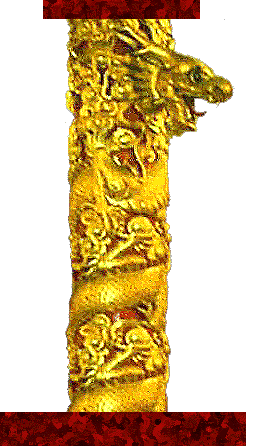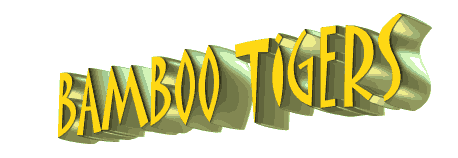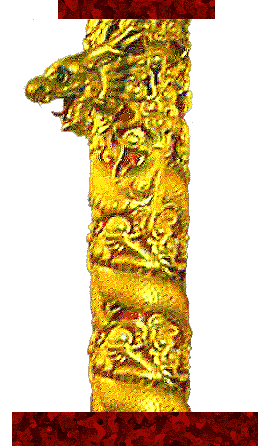| |
Hugh Levine came up from the District Attorney's office to offer input, hoping that his training on the Manhattan D.A.'s staff might constitute a fresh approach. He asked to be given a copy of each report as it came in. He was used to investigations where the inspectors--known as detectives in New York--were supplied with DD5 forms (Detectives Division, Form Number Five) for reports to be filed in the course of an investigation. These were placed in a binder in reverse chronological order so that the most recent report remained on top. Learning about a case required a simple read-through, beginning with its status in the present. For a New York D.A. working on an as yet unsolved case, reading "the fives" was essential. It made sense. Levine put in a request for a similar setup in the San Francisco unit.
Here, he ran up against the "old-versus-new" syndrome. Carrying its style over from procedures employed in Homicide and Intelligence, the Gang Task Force used a system of "supplemental reports" added to several previously established files kept in non-sequential order. Force personnel were familiar with this method, and it worked very well. Levine sensed vague distaste in the feedback from his suggestion, not so much for the proposal as for the position he occupied. A Force patrolman would later admit that Levine "looked like a nice guy; we hadn't heard too much about him, but a lot of rumors were flying around."
The main thing was the political atmosphere at the time. Chief Charles Gain had been sworn in as Chief of Police in 1976, around the same time Joe Freitas was elected D.A. The two had joined in mutual efforts to concentrate on violent crimes in the streets, with the disastrous side effect that non-violent criminality, especially prostitution, went almost unprosecuted. The informal Freitas-Gain coalition "let the good times roll" for whores from as far away as Miami and Chicago. The "ladies of the night" swamped downtown streets in packs of hundreds, rather than the usual tens and twenties. Complaints poured in from tourists accosted in the lobbies of deluxe hotels by girls who were unfazed by the wife on a prospect's arm. The classiest, best-dressed hookers developed the habit of cruising hotel hallways and knocking on doors. Finding a couple inside, they would say, "Sorry, this is the wrong room." Finding a man alone led to such straightforward propositions as, "Hi, let's have some fun." Hotel managers climbed the walls in a frenzy of frustration while bills rose for security guards specializing in "hooker patrol."
In the Police Department, Gain developed the reputation for bypassing the knowledgeable men in his own outfit, in favor of listening to counsel from "wackos off the street." Freitas' office splintered into two distinct divisions: those who had served under the prior administration and those who entered service during his reign as District Attorney.
Levine found himself caught in a maelstrom. There were also rumors that he was the cousin of Freitas' chief assistant, Dan Weinstein, which he wasn't, but such scuttlebutt was of no help in earning him the immediate respect of the Gang Task Force. On one occasion, a cordial and well-intentioned visit by Levine to the unit's tiny office served as catalyst for a lively discussion about the situation existing between the D.A.'s office and the San Francisco Police Department in general. All were in caustic agreement that they would not allow the D.A.'s office to direct the Golden Dragon investigation. The Gang Task Force had already made it clear to the Alcohol, Tobacco and Firearms Unit (A.T.F.), the Drug Enforcement Agency (D.E.A.) and the F.B.I. that the Force itself intended to maintain control. The A.T.F. volunteered support. That was to be the same policy with the D.A., although it was agreed to request assistance and advice, when necessary.
Despite all obstacles to his effectiveness in those early days, Levine tried to absorb as much as he could, meanwhile fighting another "new boy" battle among his lawyer colleagues in the D.A.'s office. As the investigation progressed, he gravitated toward McKenna, Simmons and Foley, "three movers," in Levine's estimation. These four men would grow into a tight, symbiotic relationship and accrue great respect for each other's talents.
Never before had there been a unified organization within the structure of a police department in the United States or Canada formed to specifically address the contemporary problems of North America's many Chinese communities. In San Francisco, after the days of Jack Manion's hard-fisted Chinatown Squad, there were always individual policemen, sometimes singly and sometimes in groups of half a dozen, who--on their own--focused on Chinese crime. "Chinatown hands" still on the law-enforcement scene at the time of the Golden Dragon were few in number.
McKenna began by looking for men with a long history of plodding along Grant Avenue. Naturally, he seized on Tim Simmons, McKenna's quintessential "Marlboro man." Leon Crouere had walked a beat in Chinatown for years. He knew older members of the Asian community and was blessed with the ability to listen. Too often, policemen raved about "what I found out" when what really happened was they'd talked and the witnesses or informants simply agreed with them as a dodge against speaking out themselves. Crouere had cultivated excellent sources of information within the Chinese hierarchy. A lot of people liked him. His observations were to prove of great value.
Ron Schneider had served for eight years on the old Chinatown Squad in the days when gambling was the main assault. Mike Mullane was chosen for the special value of his orderly mind. He kept everything in chronological order, was a superb file manager, and could put his finger on anything in an instant. Several younger officers--Bob Bonnet, Dave Horton, Dick Moses, Larry Ryan--were men who had, on their own initiative, worked within and on the periphery of the Asian community. Well aware of the gangs, all had submitted regular reports without direction from above. Such men were to have strong effect on the investigation. They had proved themselves able to work without supervision. It was their privilege to dress whatever way they felt best for accomplishing the work at hand. Least of McKenna's concerns was a spit-and-polish outfit. If the Gang Task Force were to succeed, that success would have to derive from dedicated, hard work on the part of its members.
The Force initiated liaison with law-enforcement agencies throughout the United States, Canada and the Far East because the gang groups were known to travel, often committing crimes on an out-of-town or out-of-country basis in order to protect local gangsters from exposure.
A card was kept on every person whose name came up in the investigation, showing his full name, his AKA's, his arrest record (if any), his address, his phone number, and any personal information available. Cards were maintained on all persons questioned in the streets--a "field interrogation stop"--giving the name, the date when stopped, where, why and by whom. The information thus obtained proved invaluable later on, as when a Force patrolman might encounter a boy in Chinatown, question him, and get an answer to the effect that, "No, sir, I never been in a gang and don't know nobody who is." A check at the office often turned up someone else's earlier card on the kid who, when interrogated two months previously, had been in chummy company with three other youths who were known to be gang members. So the boy was branded a liar, a potential suspect in any number of capers, perhaps even in the Golden Dragon.
Gun files were maintained--anybody found with a gun, the history of the gun. Moniker and automobile files were created by contacting the Department of Motor Vehicles with drivers license numbers; vehicle registrations and photos were supplied by the DMV in Sacramento. Mug shots of all Chinese young people arrested were updated. History charts of the gangs, their structures, their memberships, covered the walls of the small office. McKenna arranged to have his unit supplied automatically with a copy of any police report from any precinct in San Francisco that concerned anyone or anything Chinese. An officer was assigned to maintain the G.T.F. files on every shift. To secretary Jeannie Blasdell fell the responsibility of scanning reports and collating information that might correspond with information already on file.
Everybody had a daily activity checklist to go over in the morning after the night before. The schedule ran around the clock. Some officers and patrolmen served as constant liaison with the schools, the California Youth Authority and the Adult Authority.
The Gang Task Force knew it had to cover as much territory as did the wall of silence if the Golden Dragon and other cases were to be broken. The Dragon Force had to be everywhere at the same time. It had to become a powerful, electrifying, inescapable presence.
One kid put it this way when asked about those days: "Turn a corner, you ran into another cop in plainclothes. Like no place safe, you know. Go in the Ping Yuen Bakery, man, you got coffee and cops. Like hang out at the Sun Sing Theater, you got movies and more cops peekin' at you from the aisles. I mean, all the time! Shit, you couldn't even hide out at school. You got teachers, you got fuckin' cops!"
The gang kids collared in the streets were not cooperative. They weren't used to so many law enforcers floating around all the time.
COP: "What are you doing down here?"
KID: "Just walking around. I don't mess with nobody."
COP: "What have you got to say?"
KID: "Well, I say hi to people sometimes."
Some had begun to sense that the old days of having it their own way in the streets of Chinatown were suddenly on the wane. Their tentative estimation of the situation was correct. The Gang Task Force was gaining momentum.
|
|









